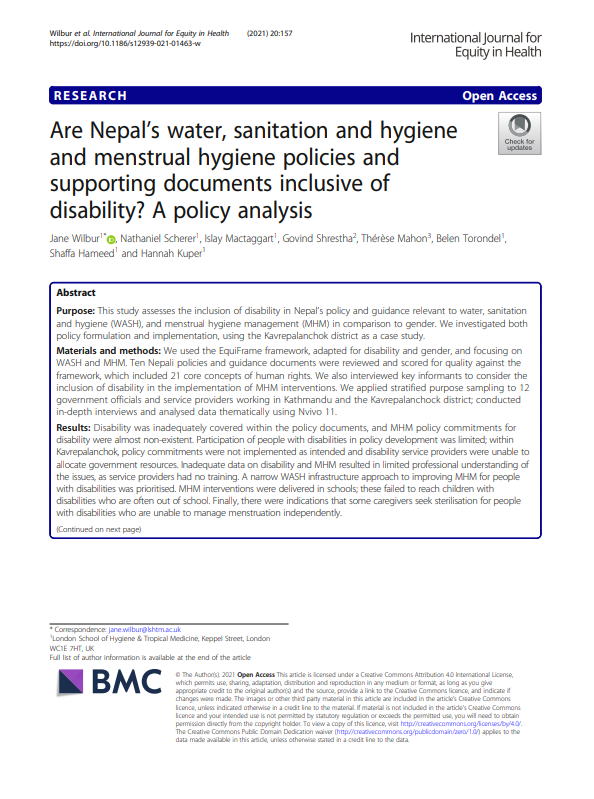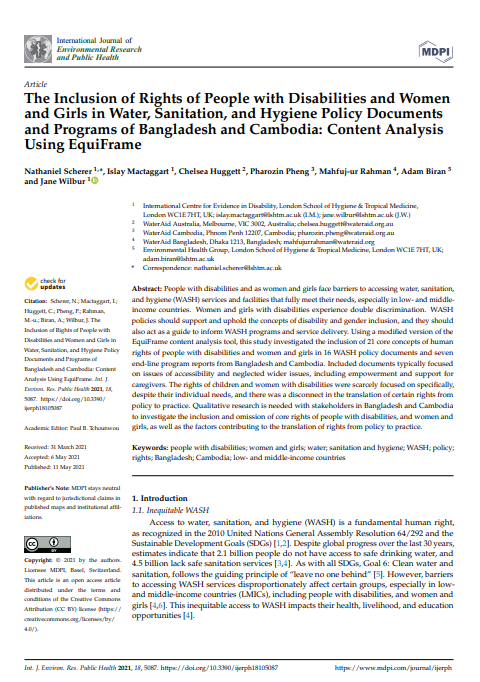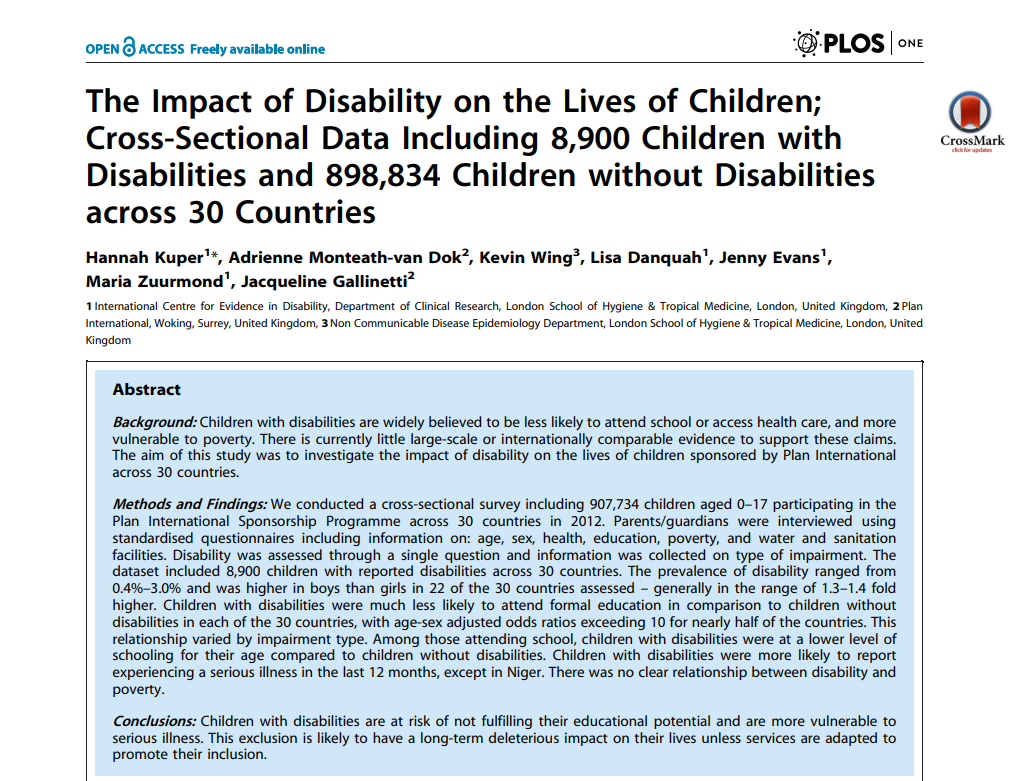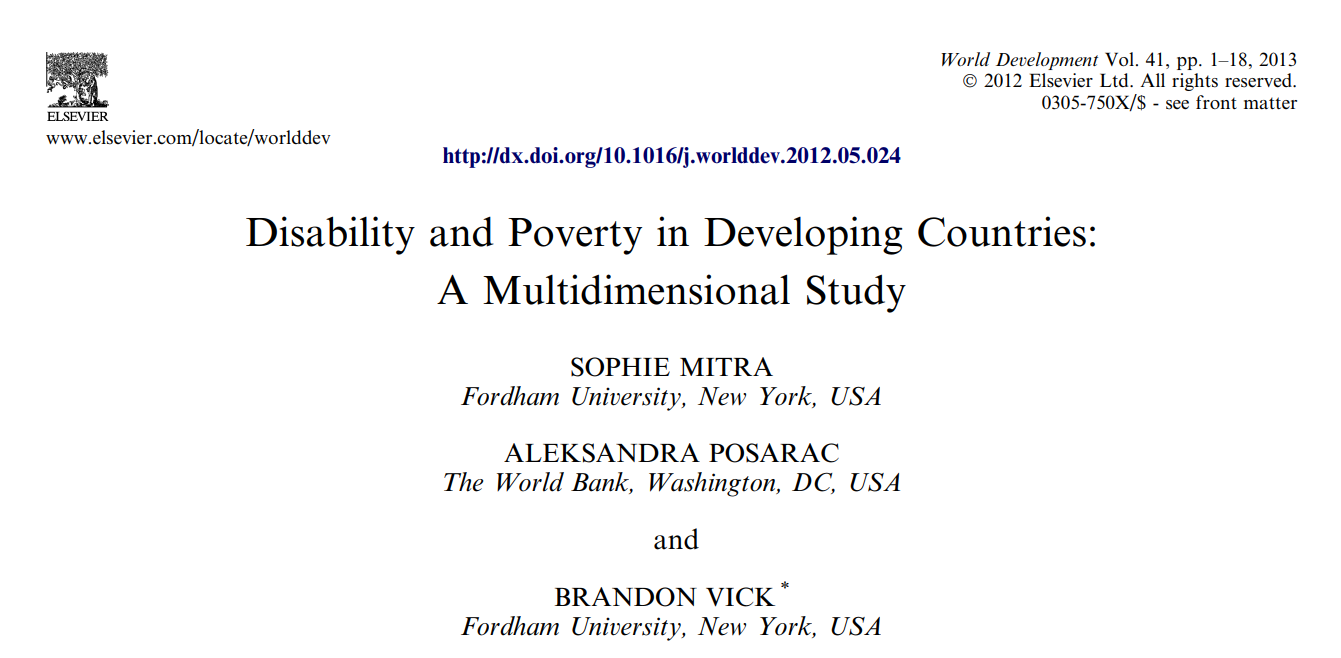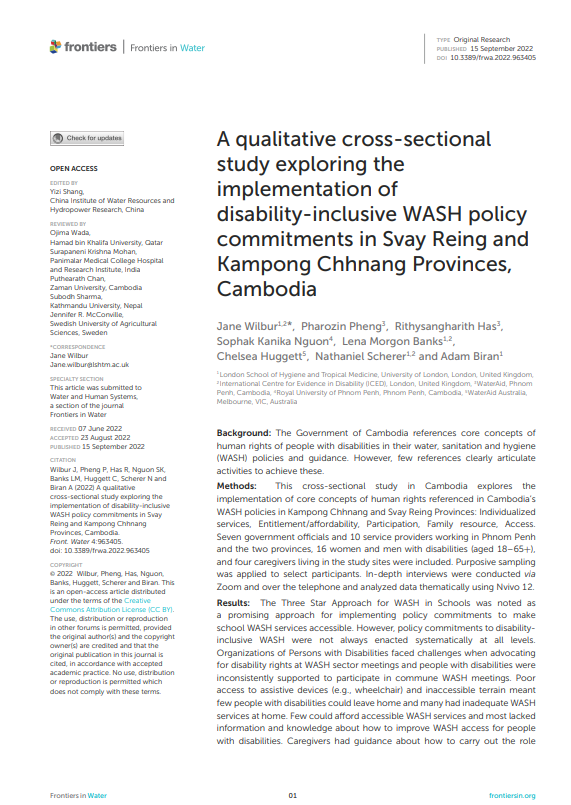
A qualitative cross-sectional study exploring the implementation of disability-inclusive WASH policy commitments in Svay Reing and Kampong Chhnang Provinces, Cambodia
Background: The Government of Cambodia references core concepts of human rights of people with disabilities in their water, sanitation and hygiene (WASH) policies and guidance. However, few references clearly articulate activities to achieve these.
Background: The Government of Cambodia references core concepts of human rights of people with disabilities in their water, sanitation and hygiene (WASH) policies and guidance. However, few references clearly articulate activities to achieve these.
Methods: This cross-sectional study in Cambodia explores the implementation of core concepts of human rights referenced in Cambodia's WASH policies in Kampong Chhnang and Svay Reing Provinces: Individualized services, Entitlement/affordability, Participation, Family resource, Access. Seven government officials and 10 service providers working in Phnom Penh and the two provinces, 16 women and men with disabilities (aged 18–65+), and four caregivers living in the study sites were included. Purposive sampling was applied to select participants. In-depth interviews were conducted via Zoom and over the telephone and analyzed data thematically using Nvivo 12.
Results: The Three Star Approach for WASH in Schools was noted as a promising approach for implementing policy commitments to make school WASH services accessible. However, policy commitments to disability-inclusive WASH were not always enacted systematically at all levels. Organizations of Persons with Disabilities faced challenges when advocating for disability rights at WASH sector meetings and people with disabilities were inconsistently supported to participate in commune WASH meetings. Poor access to assistive devices (e.g., wheelchair) and inaccessible terrain meant few people with disabilities could leave home and many had inadequate WASH services at home. Few could afford accessible WASH services and most lacked information and knowledge about how to improve WASH access for people with disabilities. Caregivers had no guidance about how to carry out the role and few had assistive devices (e.g., commodes, bedpans) or products (i.e., lifting devices), so supporting WASH for people with disabilities was physically demanding and time-consuming.
Conclusion: This study has noted several areas where Cambodia's WASH systems are focusing efforts to ensure people with disabilities gain access to WASH, but it has also highlighted aspects where implementation of policy commitments could be strengthened. A more comprehensive and cross-sectoral approach to progressively realizing the rights to water and sanitation for people with disabilities and challenging disability discrimination more broadly could significantly disrupt the vicious cycle of poverty and disability.
